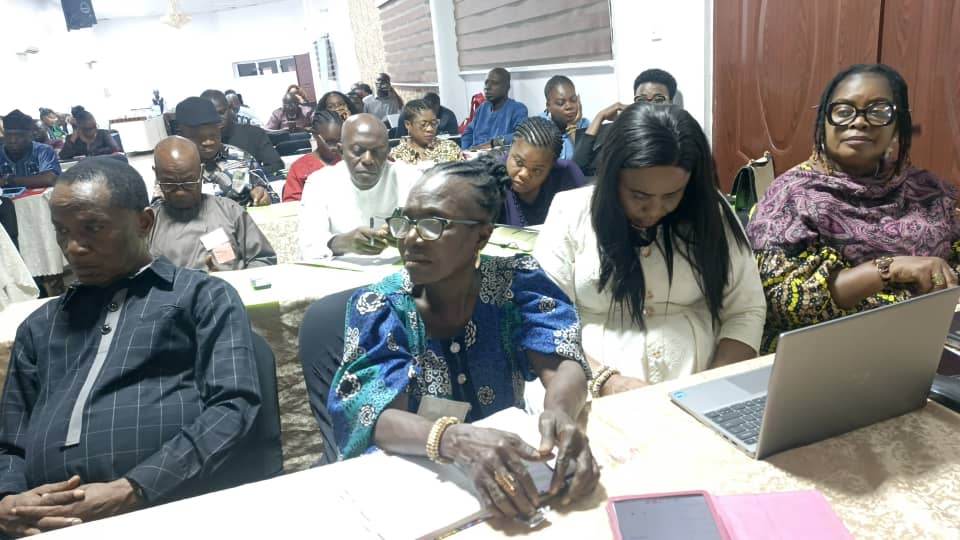Daud Olatunji
The United Nations Children’s Fund (UNICEF) has urged journalists across Southwest Nigeria, Edo and Delta States to uphold the highest ethical standards in reporting issues concerning children, warning that sensational or exploitative coverage can cause lifelong harm.
Speaking at a two-day training workshop for media practitioners held in Ibadan, UNICEF’s Chief of Lagos Field Office, Celine Lafoucriere, stressed that ethical journalism is not only a professional responsibility but a moral duty that safeguards children’s dignity and future.
“At UNICEF, we believe that every child has the right to be seen, heard, and protected,” Lafoucriere said.
“Ethical reporting is not just about following newsroom rules—it is about humanity. When we report on children, we must do so with compassion, sensitivity, and respect for their privacy and rights.”
She explained that responsible reporting helps to protect vulnerable children—especially victims of abuse, violence, or conflict—by avoiding exposure and sensationalism.
According to her, journalists have a crucial role in building a society where children are valued and protected.
“Children are not miniature adults,” she said.
“They are still developing emotionally, mentally, and socially. The way we tell their stories can either harm or heal them. Ethical reporting means protecting their identities and giving them a safe space to be heard.”
Lafoucriere added that responsible journalism strengthens public trust and contributes to social progress.
“In an age of misinformation, your commitment to truth and balance is what sets you apart. You are not just telling stories—you are shaping how communities understand, heal, and grow,” she noted.
The UNICEF chief described the two-day training as “a call to action,” aimed at equipping journalists with tools to navigate the complex ethical and legal terrain of child rights reporting.
“Our expectation is clear: that participants leave this training not just with new skills but with a renewed commitment to be champions of ethical journalism in their newsrooms and communities,” she said.
“The way we report on children today shapes the kind of society we build tomorrow.”
Also speaking, the Director of Special Programmes at the Nigerian Institute of Journalism (NIJ), Lagos, Mr. Jide Johnson, emphasized that journalists are key players in influencing public policy and protecting the nation’s most vulnerable citizens.
“When we talk about children, we are talking about ourselves and the future of our society,” Johnson said. “This training should make us advocates for child rights—creating spaces where children can grow physically, mentally, and emotionally to achieve their full potential.”
Johnson noted that despite the influence of social media, traditional and professional media remain the most powerful tools for shaping public opinion and policy.
“Policy makers still respond to what they read or watch in the mainstream media. That is the power journalists wield,” he said. “When we bring child rights issues to the front burner, traditional rulers, religious leaders, and government agencies pay attention.”
He, however, identified weak enforcement of existing child protection laws as a major challenge, urging journalists to hold authorities accountable by exposing violations of children’s rights.
“Our laws are not the problem; enforcement is. If we publicize child rights violations consistently, we will achieve better results,” he added.
The workshop, titled “Ethical Journalism and Child Rights Reporting,” brought together media practitioners from across the Southwest, Edo, and Delta States to discuss responsible storytelling, children’s privacy, and journalists’ role in advancing child-friendly policies.
As the training continues, participants are expected to share experiences, learn from case studies, and develop strategies for reporting that both inform the public and protect children from further harm.
“By choosing ethics, you choose protection. You choose dignity. You choose a better future for every child in Nigeria,” Lafoucriere concluded.
Do you want to share a story with us? Do you want to advertise with us? Do you need publicity for a product, service, or event? Contact us on WhatsApp +2348183319097 Email: platformtimes@gmail.com
We are committed to impactful investigative journalism for human interest and social justice. Your donation will help us tell more stories. Kindly donate any amount HERE




